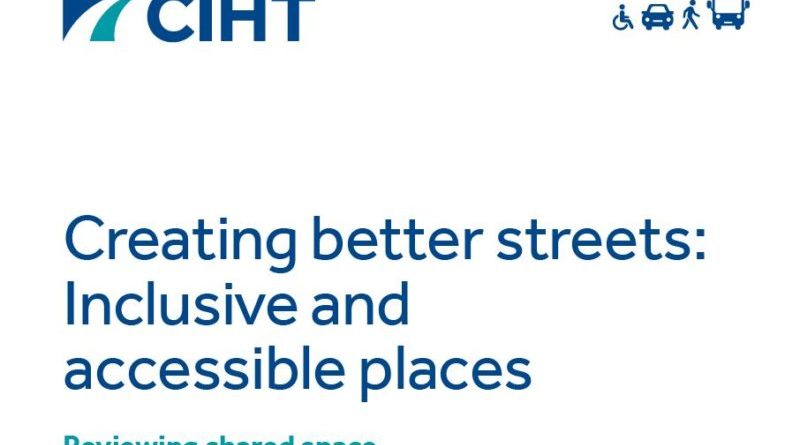Review launched into whether shared space infrastructure is appropriate in modern cities
The Chartered Institute of Highways and Transportation has today announced a review into shared space infrastructure, asking whether it is appropriate for modern cities.
The CIHT serves as an adviser to the UK Government and industry on the issue of infrastructure. Today’s document release outlines how it foresees the complex issue of street space allocation developing, giving increased consideration to the needs of vulnerable road users.
The recommendations in today’s report include:
- The need for greater awareness to create streets that are inclusive and accessible;
- The development and use of a framework of objectives and outcomes for the basis of street design;
- The need to replace the use of shared space as a concept with different design approaches;
- The need for detailed research into the needs of all users and around specific design features;
- The review of existing guidance and the development of new guidance to assist local authorities in producing better street design;
- And, consideration of amending legislation in certain areas.
If you wish to read the report in full, simply click here.
Peter Dickinson, Chair, Steering Group, Creating Better Streets said: “Shared space schemes, which are designed to achieve better places where pedestrians and cyclists can move more freely, were introduced with the aim of reducing the dominance of motor vehicles. Guidance on the topic was published by the Government in 2011.
“They have been popular with some people but have also attracted criticism. Parliament has responded to that criticism in various ways including through debates at the House of Lords and discussion at the Women and Equalities Select Committee.
“This review, carried out by CIHT members, draws on available evidence from a selection of schemes. These have helped to frame a number of recommendations for further work and improvements in the way that street design schemes are undertaken so that authorities can achieve outputs that meet the needs of all of their users.
“In undertaking the review, CIHT has worked to the principle that street design needs to meet the requirements of all users so that inclusive environments are created. This golden thread, enshrined in the requirements of the Equality Act 2010, must flow through the entire design, construction, operation and maintenance process.”
The recommendations the review makes are aimed at Government, Local Authorities and those professionals who are working to make highways inclusive, safer and a positive part of the public realm and community around them.
Andreas Markides, President, CIHT added: “Highways are a vital part of the public realm and contribute to a prosperous economy and a healthy and inclusive society.
“In recent years, inspired by government documents such as ‘Manual for Streets’, the need to achieve a better balance between the ‘movement’ (by all modes) and ‘place’ functions of highways has increasingly become accepted by the profession.
“This balancing of the movement and place functions of our highway and transport networks is a key area for consideration by transportation professionals and is a complex area where CIHT has worked collaboratively with government and others to develop guidance over a number of years.”
Tompion Platt, Head of Policy at Living Streets further welcomed the news: “There is an on-going debate around the merits of a ‘shared space’ approach; where it’s appropriate and how we design it in a way that works for everyone.
“With so much confusion around the term, we welcome that today the Chartered Institute of Highways & Transportation has called for more research to be conducted into how the shared space approach can be used to design safe, enjoyable and accessible streets and public spaces for all.
“We also strongly support the emphasis placed on stakeholder engagement, as it is vital that local people, especially those with disabilities, have the opportunity to contribute and that their views are listened to. Shared space is an approach rather than a one-size-fits-all concept, as the CIHT has said, and must be adapted to meet the needs of communities.”



